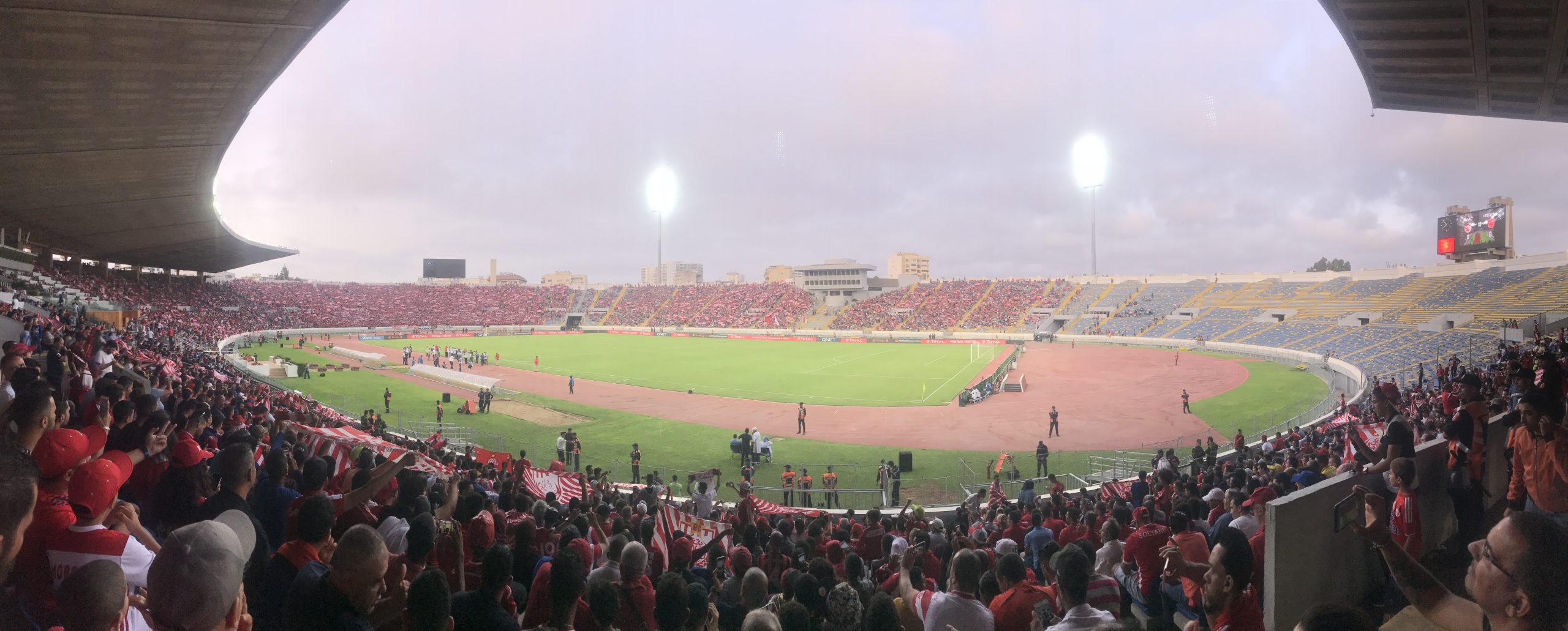Towards an African Super League

The first edition of the African Football League (AFL) concluded in November 2023, with South African side Mamelodi Sundowns adding to an increasingly crowded trophy cabinet. The AFL was a far smaller competition than initially anticipated when the concept was launched – as the Africa Super League – a year earlier, but the tournament offered a glimpse of the potential future of the continental game.
The competition was envisaged as a means to elevate the level of African club football and make it more competitive on the global stage. Originally intended to have 24 of the continent’s best teams, the initial edition had just eight, but expansion is still on the horizon. The Confederation of African Football (CAF) benefits from proactive support from FIFA president Gianni Infantino for a tournament that aims to alter the traditional perception of African club football as a mere stepping stone for players on their way to European leagues.
The competition targets lofty ambitions in terms of viewership and revenue, aiming to be one of the 10 biggest leagues in the world with an annual revenue of USD 100 million. But it also aims to restructure continental football governance and development pathways. The revenue is intended to be re-invested in supporting the growth of club football and the construction and maintenance of football infrastructure across all 54 CAF member states. The AFL also intends to alter – through its sizable prize money – the incentives for good governance on the continent, with CAF president Patrice Motsepe saying he intended for the league to strengthen African football governance, which has historically been marred by mismanagement and corruption.
Continental implications
Following the conclusion of the African Cup of Nations – which featured 24 teams this year – the AFL looms as both a source of hope and as a potential threat.
AFCON could stand to benefit from a successful continental club tournament if this promotes a high-level of competition among a larger pool of domestically-based African players – especially if it exposes them to better teams than in their (often lopsided) domestic leagues. International managers might dream of selection headaches at future tournaments as they agonise over how best to allocate limited spaces in their squad among the large group of contenders. Indeed, a putative Africa Super League would have to pay greater attention to AFCON’s place in the calendar, ensuring that players do not miss their opening matches due to club fixtures, as was the case with Cameroon’s goalkeeper André Onana this year.
However, the emergence of a formidable Super League would also represent a challenge to the primacy of AFCON – and international football – on the continent in its entirety. AFCON remains the cornerstone of the African football calendar from both a revenue and a prestige perspective. CAF would be reluctant to shift from AFCON from a biennial to a quadrennial tournament, akin to most of its counterparts, given the extent to which the organisation relies on it for revenues, and the huge amount of interest from African football fans.
Yet, the evolution of the AFL into an Africa Super League may well change this, as fans would have a closer and easier connection to leading club teams, exposed to more regular high-quality competition. This trajectory would also see African club football become a more enticing source of investment for prestige-seeking High-Net-Worth Individuals and businesses than the national teams, which ultimately remain the preserve of domestic football associations. Motsepe himself is an example of this, as the owner of Sundowns, and his drive to push the league is potentially a sign of his desire for greater competition from his counterparts on the continent. This, to some extent, places AFCON’s primacy at stake.
Football driving business
The successful development of the AFL holds the promise of delivering substantial positive socio-economic impacts to a continent grappling with acute fiscal challenges, widespread insecurity and strained diplomatic ties.
The AFL could be the catalyst for economic revitalisation by attracting significant investment – both domestic and international – into the African sports industry. The infusion of funds would not only enhance the quality of football infrastructure, but also stimulate ancillary sectors such as tourism, hospitality, and media, generating employment opportunities and bolstering local economies. A successful league could result in a surge in revenue streams, including broadcasting rights, merchandise sales, and sponsorship deals, contributing to a more diversified and resilient economic landscape.
Moreover, as the league gains international prominence, it could attract global partnerships, fostering diplomatic and economic ties between African nations and the rest of the world. Beyond economic benefits, the positive impact of a thriving football league on social cohesion and national pride cannot be overstated. A successful league has the potential to unite diverse communities, offering a source of joy and inspiration amid challenging circumstances. By showcasing Africa’s sporting prowess on a global stage, the league could help reshape international perceptions, attracting positive attention and investment to a region too often overshadowed by its challenges.
International ramifications
On the global scene, the evolution of the AFL has the potential to significantly disrupt the existing power structures governing the international football ecosystem. The showcasing of immense talent and passion for the sport on the continent through an elite league, such as the AFL, could challenge the dominance of traditional football powerhouses and reshape the global trajectory of talent and resources.
As African football rises in prominence, it will inevitably demand a more equitable distribution of resources and decision-making power within the global football governance structures, challenging the long-standing hegemony of certain regions – notably Europe – and paving the way for a more inclusive and diverse footballing community.
Such disruption might also serve the ambitions of the AFL’s controversial sponsor, Saudi Arabia. The prospect of a major injection of funds into the African football scene stands to potentially challenge FIFA’s hegemony not only on the continent but also globally. This strategic shift would be mutually beneficial to both Africa and Saudi Arabia, as it aligns with the broader geopolitical ambitions of both parties and reflects an endeavour to wield influence beyond traditional spheres, utilising football as one of the pathways to gain influence on the global stage.
In conclusion, the trajectory of the AFL promises a seismic shift in the landscape of international football. As the league showcases extraordinary talent and passion on the African continent, it also challenges the established dominance of traditional football powerhouses and sets the stage for a more inclusive and diverse global football community. The rise of African football in prominence signifies a demand for equitable resource distribution and decision-making power within global governance structures. This transformative journey goes beyond the evolution of continental football to the broader sustainable growth and economic development of the continent, ushering in increased diversity and inclusivity from all corners of the world, and playing a central role in shaping the beautiful game’s future.
About the Authors
Rafael Friedman is a Consultant in the Public Policy and Regulatory Affairs team based in Nairobi. He can be reached at [email protected].
Agwu Ojowu is a Senior Consultant, splitting his time between Abuja and Lagos, where he leads service delivery in Nigeria. He can be reached at [email protected].
Proud to be BCorp. We are part of the global movement for an inclusive, equitable, and regenerative economic system. Learn more


